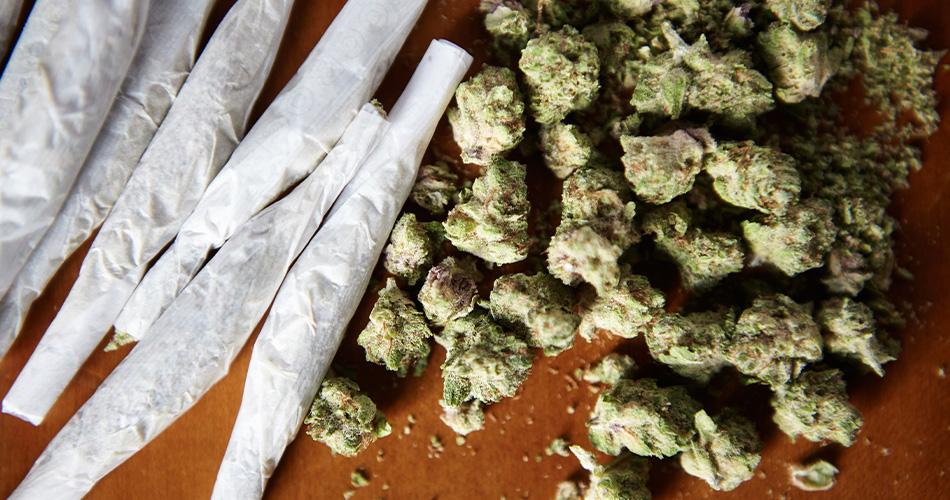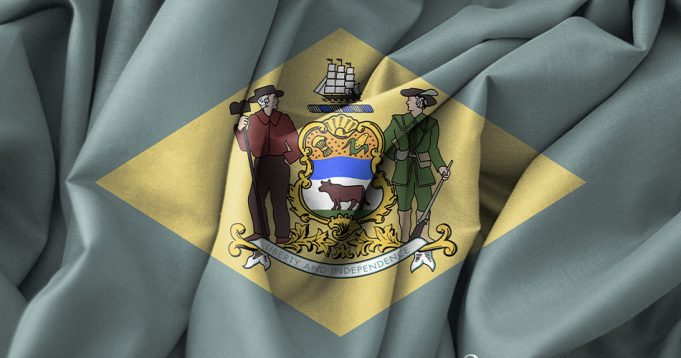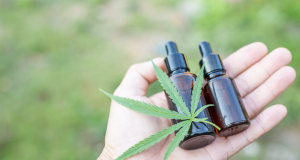In a purely political ploy, Delaware is set to become the next state in the United States to legalize and regulate recreational marijuana.
Democratic Gov. John Carney of Delaware announced that he would not veto a pair of bills that would legalize and regulate recreational marijuana in the state. Doing so makes the first state to officially join the United States the next stage of the modern political era to finally adopt marijuana liberalization measures in support of not only economic growth but criminal justice reform.
“In the coming days, I will allow House Bill 1 and House Bill 2 to be enacted into Delaware law without my signature,” Gov. Carney said in a statement released by his office on April 21, 2023, one day after the popular 4/20 holiday that holds significant clout in marijuana culture. “These two pieces of legislation remove all state-level civil and criminal penalties from simple marijuana possession and create a highly regulated industry to conduct recreational marijuana sales in Delaware,” Gov. Carney added.
Riding the party line?
Despite being a Democrat, Gov. Carney doesn’t believe that legalization is a step in the right direction. Democratic-leaning voters are traditionally in broad support of recreational and medicinal marijuana legalization, including decriminalization.
For example, the national Democratic Party platform indicates broad support for universal decriminalization and rescheduling.
Democrats also indicate that they will not intervene in state rights in the effort to legalize recreational marijuana. This approach is what former President Barack Obama adopted when states like Colorado and Washington became the first jurisdictions in the country to officially legalize and regulate recreational marijuana.
Since then, dozens of states have fully legalized marijuana. But, Carney’s position on legalization, though in line with his party’s platform, is considered taboo for voters who support legal weed.

For the voters
The University of Delaware Center for Political Communication found that 60 percent of registered voters in the state said that the use of marijuana should be legal in some context. About 30 percent say marijuana should remain illegal and 10 percent were undecided. University of Delaware’s survey corresponds to polls at the national level that collectively finds overwhelming support for marijuana decriminalization, national recreational and medicinal legalization, and rescheduling of the drug under the Department of Justice’s Drug Enforcement Administration. This is noteworthy.
Carney neglected to reflect the position of voters in 2022 when he vetoed a marijuana legalization bill after it advanced through the Democrat-controlled state legislature. At that time, Gov. Carney said he doesn’t “believe that promoting or expanding the use of recreational marijuana is in the best interests of the state of Delaware, especially our young people,” among other concerns.
Now, Carney has stayed his hand. In the United States system of government, governors have the right to veto legislation that they deem harmful or that their administration disagrees with the bill.

However, Carney can choose not to take any action at all during a set period of time. If that period of time runs out and no action is taken, the bill will automatically become law. This is what he did.
“As I’ve consistently said, I believe the legalization of recreational marijuana is not a step forward,” Carney said in his statement.
“I want to be clear that my views on this issue have not changed. And I understand there are those who share my views who will be disappointed in my decision not to veto this legislation,” he adds.
“I came to this decision because I believe we’ve spent far too much time focused on this issue when Delawareans face more serious and pressing concerns every day. It’s time to move on,” he admitted. This is evidence of a clear political move taken by Carney to finally reach detente and move on to other political and policy positions. Looking forward, Carney’s lack of veto means that the two bills will become law on Sunday. The regulatory bill will not issue up to 30 retail licenses where people can buy marijuana legally until the summer of 2024, likely next August.

Moving forward
In the interim, retail regulations will be adopted by the state, and the applicants for retail licenses will be reviewed and approved. The tax rate for retail sales is 15 percent. House Bill 2, specifically, covers the regulatory framework for retail sales.
House Bill 2 also permits 60 cultivation licenses and five licenses for product testing. House Bill 1 officially eliminates criminal and civil penalties for the possession of personal use quantities of cannabis flower and other products related to marijuana, including paraphernalia. Adults aged 21 years or older are permitted to use cannabis in private. Cannabis use in public remains prohibited, including underage use and possession.
These penalties are subject to civil fines, per the new law.
Democratic state Rep. Ed Osienski is the leading proponent for the legalization bills. He says that he is “grateful” to finally have a recreational marijuana policy not blocked by Gov. Carney.
Support is broad
Rep. Osienski, in a press statement, said that “we know that more than 60% of Delawareans support the legalization of marijuana for adult recreational use, and more than two-thirds of the General Assembly agreed.” Rep. Osiensky further elaborated that he respects Gov. Carney’s opposition to legal marijuana.
“I understand the governor’s personal opposition to legalization, so I especially appreciate him listening to the thousands of residents who support this effort and allowing it to become law,” Osienski said in an official press release. “I am committed to working with the administration to ensure that the effort to establish the regulatory process goes as smoothly as possible.”
Paul Armentano, the deputy director of the National Organization for the Reform of Marijuana Laws (NORML), applauded the news.
“Passage of this legislation is the result of years of grassroots activism by Delaware NORML and by thousands of concerned citizens,” he said. “Further, it is a reflection of lawmakers having evolved on this issue and voting in a manner that is responsive to the will of the electorate, which overwhelmingly favor ending the failed policy of cannabis criminalization in The First State.”
Delaware is the 22nd state in the union to legalize marijuana.



![Recent Conference Urged Nations Worldwide to “Quit [Smoking] Like Sweden”](https://www.vapingpost.com/wp-content/uploads/2024/04/vape-conference-238x178.png)







